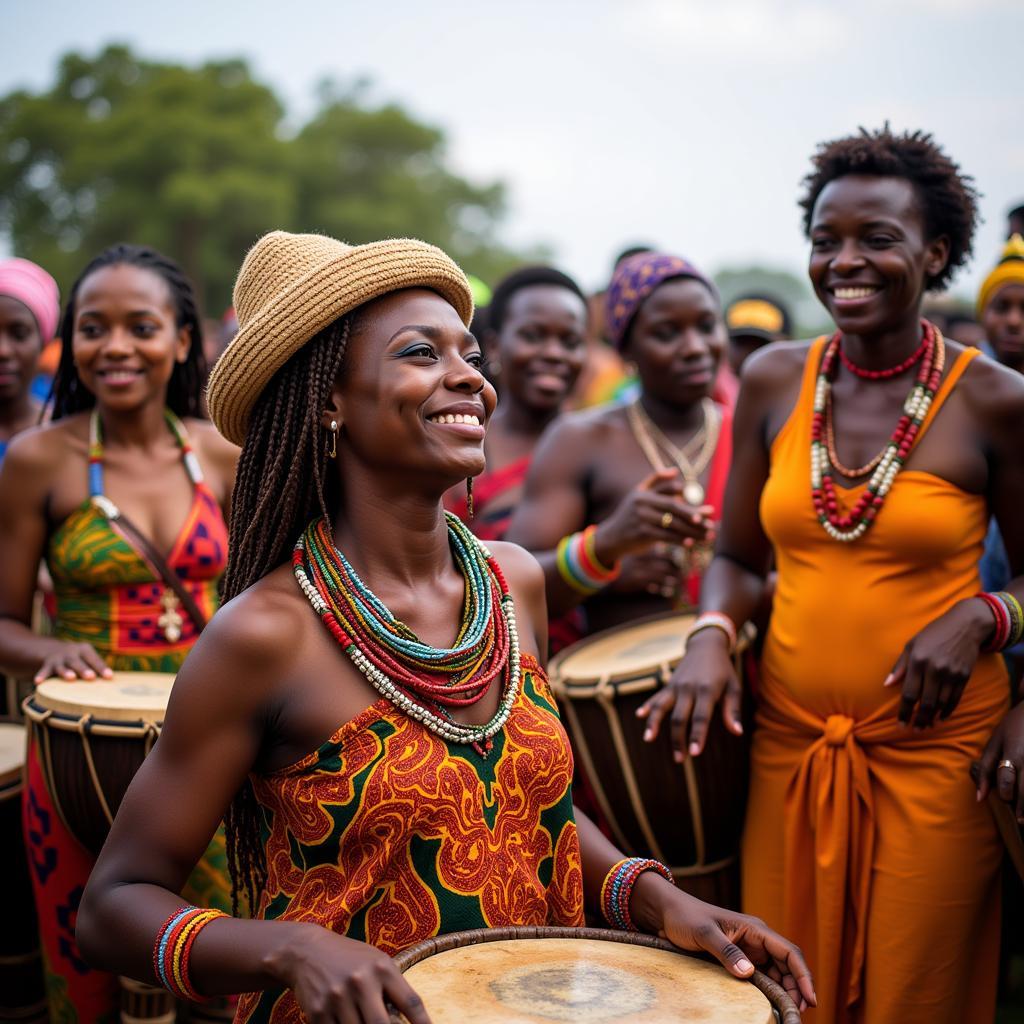Exploring the African Keyboard: A Journey Through Language, Culture, and Technology
The African Keyboard represents more than just keys and characters; it’s a gateway to a continent rich in languages and diverse cultures. It symbolizes the intersection of tradition and technology, bridging the gap between ancient oral traditions and the digital age. From Swahili to Amharic, the African keyboard empowers communication and preserves cultural heritage.
Unveiling the Diversity of African Keyboards
Africa boasts an incredible linguistic landscape, with over 2,000 languages spoken across its 54 countries. This linguistic diversity is reflected in the variety of African keyboards available. Unlike the ubiquitous QWERTY layout common in English, African keyboards incorporate unique characters and diacritics to represent the sounds and nuances of their respective languages. This allows speakers to accurately type their mother tongues, fostering digital literacy and preserving linguistic heritage in the digital realm. For example, the Amharic keyboard uses the Ethiopic script, a unique writing system with its own set of characters.
Navigating the Challenges and Triumphs of the African Keyboard
The development and implementation of African keyboards has not been without its challenges. Standardization efforts have often been hampered by the sheer number of languages and dialects. However, significant progress has been made in recent years, with organizations and software developers working to create user-friendly and accessible keyboards for various African languages. These efforts are vital for promoting inclusivity and enabling wider access to digital resources and communication. Imagine the power of connecting with your heritage through african gospel songs in english.
How Does the African Keyboard Impact Digital Inclusion?
The increasing availability of African keyboards is playing a crucial role in bridging the digital divide. It empowers communities to access information, participate in online discussions, and contribute to the global digital landscape in their own languages. This is particularly important for education, where students can now learn and create content in their mother tongues, fostering a stronger sense of identity and cultural pride. Think about the resources now available, such as the african braille centre.
African Keyboard: A Cultural Preservation Tool
Beyond mere functionality, the African keyboard serves as a powerful tool for cultural preservation. By enabling digital communication in local languages, it helps safeguard indigenous knowledge, oral traditions, and literary expressions. It allows younger generations to connect with their cultural heritage in a way that resonates with their digital lives. The rise of digital platforms also makes sharing these traditions easier, like exploring the vibrant rhythms of an african dance song.
What Role Does Technology Play in Preserving African Languages?
Technology, through the development of African keyboards and language learning apps, is instrumental in preserving and promoting African languages. These tools provide new avenues for language learning and revitalization, particularly amongst younger generations. This technological embrace also extends to other aspects of African culture, such as showcasing the beauty and spirit of african churchbeautyful.
“The African keyboard is not simply a tool for typing; it’s a symbol of empowerment, a bridge to the future, and a key to unlocking the rich tapestry of African cultures,” says Dr. Abeni Adebayo, a renowned linguist specializing in African languages.
The Future of the African Keyboard
The future of the African keyboard is intertwined with the ongoing advancements in technology. Voice recognition software and artificial intelligence are opening up new possibilities for communication and language access. As technology continues to evolve, so too will the African keyboard, adapting to meet the needs of a rapidly changing digital landscape. Perhaps we’ll see further integration with music, allowing for easier access to treasures like the african baby goombay dance band mp3.
Conclusion
The African keyboard stands as a testament to the resilience and richness of African languages and cultures. It represents a crucial step towards digital inclusion and the preservation of linguistic heritage. As technology continues to advance, the African keyboard will undoubtedly play an increasingly vital role in connecting Africa to the global digital community while celebrating its unique linguistic diversity.
FAQ
- What are the different types of African keyboards?
- How can I access an African keyboard on my computer or mobile device?
- Are there resources available for learning to type on an African keyboard?
- What is being done to standardize African keyboard layouts?
- How is the African keyboard impacting education and literacy across the continent?
- What challenges are faced in developing and implementing African keyboards?
- How does the African keyboard contribute to cultural preservation?
Do you have other questions about African culture, music, or history? Explore our other articles for more insights into this vibrant continent.
When you need assistance, please contact us by Phone: +255768904061, Email: [email protected] or visit our address: Mbarali DC Mawindi, Kangaga, Tanzania. We have a 24/7 customer support team.

